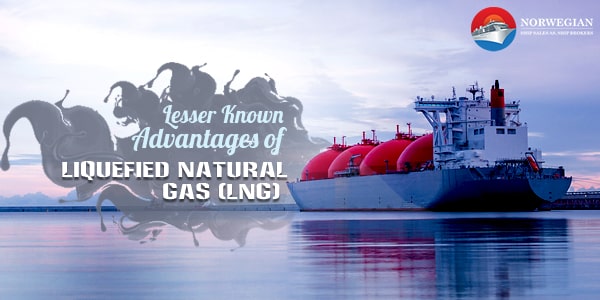For years, the modern vessels of all types, have been relying heavily on crude oils. At first, it seemed normal and the idea of it worked fine. But with the growing threat to the environment, the scenario in the shipping industry has changed significantly. The environmental impact of the shipping industry has been massive and sadly constant. The greenhouse gas emissions combined with oil pollution has affected the environment in a severity that can be seldom explained.
According to reports released by the International Maritime Organization (IMO), carbon dioxide emission from the industry in the year 2012 constituted of 2.2% of the total human-made pollution. And if the reports are to be believed, the number can rise to almost 550% by the year 2050, if no immediate actions are taken. In spite of the numerous international regulations undertaken by IMO (MARPOL being the most important international marine environmental convention), the shipping industry has been avoiding taking responsibility for the global carbon footprint is created. Millions of chemicals are unloaded in the water bodies. The emission of greenhouse gases like sulphur oxide, nitrogen oxide and carbon dioxide in significant amounts contribute heavily to global warming, yet the industry kept using the most traditional oils available in the market.
However, the last few years have seen a bit of a change with more shipping owners switching to energy-saving methods. Replacing oil with gas is one such transformation that is taking place right at this moment. Though a strenuous and difficult feat to achieve, the effort has been real. The benefits of using sustainable Liquefied Natural Gas (LNG) are many. Shifting to LNG not only has a positive impact on the environment but can also change the face of the shipping industry. Combined with various technologies, LNG can be used to restrain the air emissions. LNG is also a great source of energy.
However, the extension of the advantages of using LNG is widespread, and some of these have been summarized here.
LNG is Environment-Friendly
LNG reduces the emission of sulphur in the environment. Most of the ships emit sulphur oxides due to the fuel burning in the ship engines. This has proved to be one of the biggest threats to the environment over the years. Shifting to LNG allows reducing sulphur by a significant amount. Also, LNG is known to cut down the emission of nitrogen oxide and carbon dioxide by 25%. This itself allows LNG to be recognized as an environmental-friendly fuel source.
LNG is Cost-Effective
LNG is available at a cost-effective price as compared to the other fuel sources, which has already reached its maximum price cap. Shifting to LNG can allow the shipping companies to cut down cost and make a lot of profit. With profit margin on a steep decline, the use of a cheaper oil source can be extremely beneficial, especially for the small companies. Shifting to LNG is more favourable for the industry that it can anticipate.
Hence, it can be very well-deduced that LNG is the future of the shipping industry. With functional benefits to offer, shifting, LNG can change the maritime industry for the better. Though there still exists a few distinguished disadvantages, however, with time, more research and further development, LNG are set to become the next big thing.


